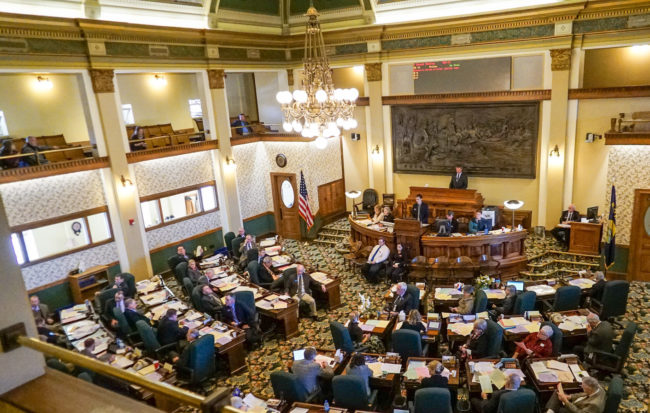![]() By Derf Johnson
By Derf Johnson

For decades, Montanans have had access to draft bills and associated documents at the Montana Legislature. This information, commonly referred to at the Capitol as the “junque” file, is a collection of information that includes key documents such as bill drafts, communications between legislators and lobbyists, and other analyses that shed further light on legislation. The public did not always have access to these files, but due to a lawsuit brought by MEIC against the Legislature in 1995, Legislative Services was required to make the files available for public scrutiny under Montana’s Constitutional Right to Know. Since that time, members of the public have had full access to this information, which has proven critical in understanding the intentions, motives, and consequences of proposed legislation.
This past September, the Legislative Services Division, which provides bill drafting and other support to the Legislature, announced a new policy. Now, when legislative staff receive information requests for junque files, they must obtain a legislator’s approval before releasing documents to the public. Under Legislative Services’ new policy, the public is being denied access to documents that legislators may selectively choose to withhold. The move was a shocking turn of events, and a new and broadly-sweeping policy in response to a discovery dispute in another matter. The new policy reverses over 25 years of public access to junque files and raises very clear constitutional issues about Montana and our fundamental right to access government documents.
MEIC can’t sit idly by and watch this happen. Part and parcel of our work to protect Montana’s environment is assuring that the Right to Know and Right to Participate are fully enforced. Access to governmental decision-making and documents is critical to inform our members and our advocacy, and our work would be seriously stymied without it. In late October, MEIC, David Saslav of Great Falls, and Kaylee Hafer of Butte filed suit against Legislative Services for its denial of several junque file requests under its new policy.
In the past, junque files have helped shed light on which lobbyists may be involved in the creation of legislation, whether national groups (such as the American Legislative Exchange Council) have had influence over the drafting process, and the motives behind why bills are being proposed. Without this information, the public would be left in the dark on the legislative drafting process, which would be an unfortunate return to the “copper collar” politics of the last century. MEIC and our partners fully intend to let the light shine in.
MEIC is represented by Kim Wilson and Robert Farris-Olsen of the law firm Morrison, Sherwood, Wilson, & Deola. Attorneys Rylee Sommers-Flanagan and Mikaela Koski of the public interest law firm Upper 7 Law are also representing the parties. Hopefully, some resolution on this matter will occur before early January, when the Legislature begins its 2025 Session, and access to junque files will be critical for the public to meaningfully engage in the process.
This article was published in the December 2024 issue of Down To Earth.

